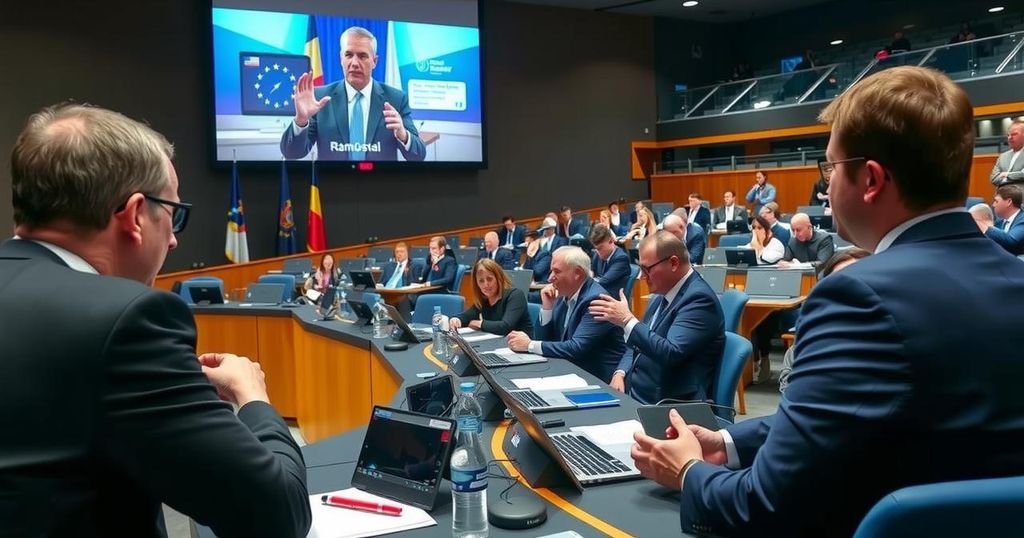TikTok CEO Summoned to EU Parliament Amid Romanian Election Controversy

TikTok’s CEO is summoned by the EU Parliament for questioning regarding the platform’s potential role in the recent election in Romania, where far-right candidate Călin Georgescu achieved a surprising victory amidst allegations of disinformation and the use of fake accounts. Lawmakers are advocating for stricter regulations to prevent similar incidents in the future.
BRUSSELS — The Chief Executive Officer of TikTok has been summoned to appear before the European Parliament amid allegations regarding the platform’s involvement in the recent Romanian presidential election. This follows the unexpected success of far-right candidate Călin Georgescu, who has raised alarm over political instability within the EU and NATO member state. Lawmakers specifically questioned the influence of TikTok due to its apparent facilitation of disinformation and the use of fake accounts prior to the election.
The concern surrounding TikTok has been accentuated by criticisms from Valérie Hayer, the head of the liberal Renew Europe group, who demands accountability under the Digital Services Act (DSA). She labeled Romania’s situation as a cautionary example of how radicalization and misinformation can jeopardize democratic processes across Europe. Emphasizing the direct impact of the TikTok campaign, Hayer urged that enhanced scrutiny over digital platforms is essential to safeguard electoral integrity.
In response to these developments, Romanian Prime Minister Marcel Ciolacu has called for investigation into the financial backing for Georgescu’s TikTok campaign, stating that “the source of financing, in my opinion, is to be followed, ‘follow the money.'” Experts argue that TikTok’s terms against paid political advertising were not sufficiently enforced, thereby allowing the ultranationalist candidate’s messaging to proliferate unchecked.
As political figures express their outrage, researchers contend TikTok failed to monitor the creation of thousands of fake accounts that served to support Georgescu’s agenda despite the platform’s acknowledgment of its role in disseminating reliable election-related content. Ultimately, overwhelming evidence has emerged to suggest a considerable impact by TikTok on the election results, leading to demands for more stringent regulatory measures in the future.
This controversy marks a continuation of scrutiny directed at TikTok within the European Union. Previously, French President Emmanuel Macron labeled the platform as a catalyst for addictive behavior and a conduit for misinformation, though substantive legal actions have yet to be taken against it.
The controversy surrounding TikTok’s involvement in the Romanian elections reflects broader issues regarding social media influence on democratic processes. As TikTok, owned by Chinese company Bytedance, faces increasing scrutiny in the EU, particularly following the rise of far-right movements spurred by disinformation campaigns, calls for accountability and regulatory oversight are growing louder. The implications of these developments extend beyond Romania, raising concerns about potential effects on democratic integrity across Europe.
In summary, the situation regarding TikTok’s role in the Romanian election has sparked significant debate regarding the regulation of social media platforms and their influence on political outcomes. Lawmakers are demanding accountability to ensure that electoral processes remain free from disinformation and manipulation. The case highlights urgent needs for enhanced oversight mechanisms to secure the integrity of democratic elections throughout Europe.
Original Source: www.politico.eu








